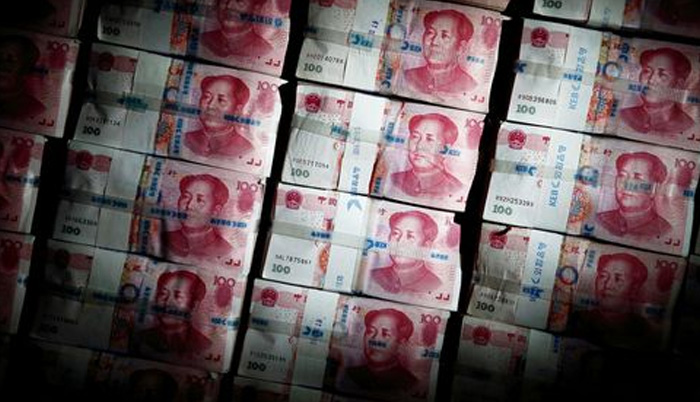![]() Home > World Business
Home > World Business
China's $246 Billion Foreign Buying Spree Is Unraveling

![]() May 11th, 2017 | 15:06 PM |
May 11th, 2017 | 15:06 PM | ![]() 920 views
920 views
CHINA
After stunning the world with a record $246 billion of announced outbound takeovers in 2016, Chinese dealmakers are now struggling to cope with tighter capital controls and increasingly wary counterparties. Cross-border purchases plunged 67 percent during the first four months of this year, the biggest drop for a comparable period since the depths of the global financial crisis in 2009, according to data compiled by Bloomberg.
Analysts see few signs of a rebound as Chinese regulators make it difficult for acquirers to move money overseas. Foreign sellers have also thrown up new hurdles after getting spooked by a string of canceled deals. Some are forcing suitors to pay unusually large penalties if offers fall through, while others are shunning Chinese bids in favor of lower-priced offers from elsewhere.
“China’s outbound M&A activity will likely remain slow for the rest of this year,” said Bee-chun Boo, a Beijing-based partner at the mergers and acquisitions practice of law firm Baker & McKenzie LLP.
The drop-off in deals should help stem capital flight and stabilize China’s battered currency. But it could also undermine a big pillar of support for corporate valuations around the world. Last year’s 137 percent surge in Chinese takeovers vaulted the country to No. 2 behind the U.S. on the ranking of global acquirers.
Cooling off the buying frenzy has become a policy priority in Beijing. Through the end of September, authorities plan to curb offshore acquisitions of $1 billion or more in industries outside a buyer’s core business, people with knowledge of the matter said in November. They’ll also ban most investments of $10 billion or more and restrict foreign property purchases exceeding $1 billion by state-owned enterprises, the people said.
Even previously announced deals are vulnerable. Chinese developer Shandong Tyan Home Co. in April blamed capital controls for backing out of talks to acquire Barrick Gold Corp.’s stake in an Australian mine for $1.3 billion. The $1 billion purchase of Dick Clark Productions Inc. by billionaire Wang Jianlin’s Dalian Wanda Group Co. was called off in March, after people with knowledge of the matter said the conglomerate was having difficulty moving money out of China.
That same month, Beijing-based property firm Macrolink Group ended discussions to buy a 600 million-pound ($777 million) plot of land in London from St. Modwen Properties Plc for a similar reason, according to people familiar with the matter. A person who answered the phone at Macrolink’s headquarters said no executives were available to comment, and the company didn’t immediately reply to emailed queries.
“Capital controls have clearly had a dampening effect on China’s outbound M&A activity,” Joseph Gallagher, head of mergers and acquisitions for Asia Pacific at Credit Suisse Group AG, said in an interview in Hong Kong.
There are exceptions, of course. HNA Group Co., a Chinese aviation-to-hotels conglomerate, has embarked on a flurry of overseas purchases this year -- ranging from a nearly 10 percent stake in Deutsche Bank AG to the $1 billion takeover of Singapore logistics provider CWT Ltd. Deals seen as important for Chinese economic development have also won official approval, including the country’s biggest-ever overseas purchase, the $43 billion acquisition of Switzerland-based seed maker Syngenta AG by China National Chemical Corp.
To get around capital controls, some acquirers have tried to secure financing from the overseas branches of Chinese lenders by pledging their onshore assets as collateral, according to law firm Clifford Chance. Other strategies include pursuing smaller deals and teaming up with offshore private-equity firms, said Baker & McKenzie’s Boo.
Still, many sellers are growing wary. To protect against the risk of an offer falling through, they’re now asking Chinese acquirers to agree to break fees as high as 10 percent of the deal’s value, up from around 2 percent previously, according to Violet Ho, senior managing director for greater China at Kroll Inc., a New York-based risk consultancy that provides M&A due diligence.
In one recent example, a consortium led by Zhengzhou Coal Mining Machinery Group Co. agreed to a 10 percent break fee as part of their 545 million-euro ($592 million) offer to buy Robert Bosch GmbH’s starter and generators business this month. Chinese developer C C Land Holdings agreed to a 287.5 million-pound deposit for its 1.15 billion pound offer to buy London’s Cheesegrater tower from British Land Co. and Oxford Properties Group Inc. in March.
While bankers say most overseas sellers still want Chinese bidders involved in their auctions, that hasn’t stopped target companies from turning down high-priced offers from China on concern the deals might be delayed or fall through. Capital & Counties Properties Plc, a U.K. property developer, spurned a higher offer from HNA when it sold the Olympia exhibition center in west London to a group of German buyers in April, people familiar with the matter said at the time.
Given the headwinds facing Chinese acquirers, deal volume is likely to end the year 40 percent to 50 percent below the 2016 level, according to Fang Jian, managing partner for China at law firm Linklaters LLP.
“We’re expecting fewer mega-sized deals and the volume of Chinese outbound acquisitions may drop significantly,” said Terence Foo, who advises companies on cross-border M&A as a co-managing partner for China at Clifford Chance. “Foreign sellers have become more skeptical.”
Source:
courtesy of BLOOMBERG
by Jack Sidders and Vinicy Chan
If you have any stories or news that you would like to share with the global online community, please feel free to share it with us by contacting us directly at [email protected]